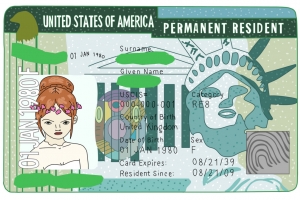Support migrant centric journalism today and donate

Confusion over US work visas for Canadian specialized nurses sparked problems at American borders recently. Concerns had been raised that some Canadian nurses had encountered problems either renewing their non-immigrant NAFTA Professional (TN) visa or getting the classification at the US border.
However, US Customs and Border Protection (CBP) recently issued a statement saying that specialized nurses from Canada do qualify for TN professional visas. After a minority of Michigan hospitals reported that some Canadian employees had been stopped at the border, the CBP issued the statement to clarify the situation.
According to a BBC report, Henry Ford Health System (HFHS) officials became increasingly concerned after some nurses encountered problems renewing work permits. The CBP said that nurses affected should resubmit their application for the permit.
US Visa NAFTA professional TN Visas
The majority of hospitals in America’s Detroit area hire Canadian nurses on NAFTA professional TN visas – which enables Canadian and Mexican citizens to work in the United States for US or foreign employers.
However, a recent news conference held by HFHS – which operates a number of hospitals in Detroit – raised concerns over the ‘hard time’ Canadian nurses with advanced skills were having at US borders.
A memo distributed by the Michigan Council of Nurse Practitioners to its members made reference to one nurse’s story – a Canadian who had been living and working in Detroit for years. Her TN status was due for renewal, but she was informed that nurse practitioners ‘might not be covered’ when she tried to get it updated.
While this particular nurse has since been able to renew her TN and return to work, according to the council, many Canadian nurses continue to encounter problems at the border. Although the exact number being stopped by US CBP is unclear, the issues are apparent.
Meanwhile HFHS officials have said that they’re “looking forward to working with the CBP to resolve the issue on behalf of our nurses.” According to HFHS data, 362 Canadian nurses were working for them in 2015, while many more Canadian nurses work in other area hospitals, commuting via a short trip across the Detroit River.
Around 30 advanced speciality nurse practitioners and nurse anaesthetists working for HFHS could be affected by potential changes to the TN rules, according to the organisation’s officials.
In a statement, CBP moved to reassure people that there had been ‘no policy changes that would impact TN status.’ The problems faced by Canadian nurses at the US border are likely to be attributed to incorrect documentation or a lack of relevant paperwork, claimed the CBP.
Kris Grogan, a CBP spokesman, said: “Our agency has performed a review and have deemed that those specialized degrees do fall under the TN status.”
Special adviser at the Cross Border Institute at the University of Windsor in Ontario, Laurie Tannous, indicated that reports of problems at the border are less likely to be linked to any direct CBP rule changes, but more likely to be a ‘literal reading of Nafta regulations by border officials under the Trump administration.’
Tannous argued that registered nurses do qualify to work in the US under the TN category. However, Nafta documentation does not make it clear that nurses with specialized skills are also eligible for TN status.
She said: “They are doing a literal interpretation. Now they are reading line-by-line.”
According to Tannous, hospital officials are concerned that while they are willing to apply for other work visas for their nurses, they didn’t know if their staff would be in work that day or were being held at the border.
Tannous stated that there is a nursing shortage in Michigan, hence the reason hospitals are recruiting Canadian nurses. “There are patients that need care and to run hospitals, short-staffed, is a scary thought,” she said.





















